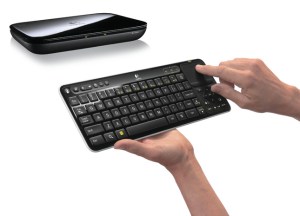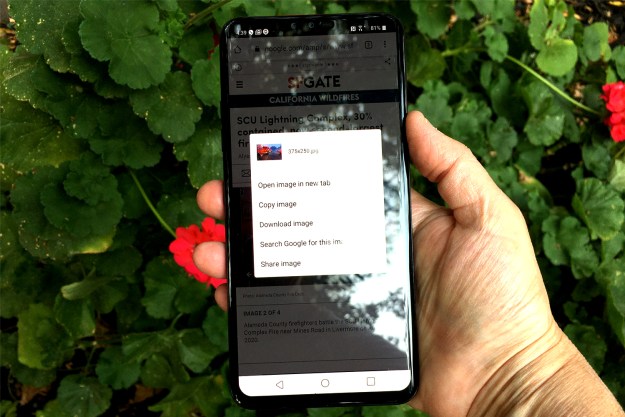
Google chairman (and former CEO) Eric Schmidt is no stranger to controversial remarks. Some of our favorites include suggesting people move if they don’t want to be seen in Google’s Street View, and that Google will eventually get to the point where it has a good idea what its users are thinking. This week, speaking at LeWeb 2011, Schmidt has raised eyebrows again with two assertions: that Android is already ahead of Apple’s iOS, and that Google TV will be on the majority of new TVs by mid 2012.
These are bold words — but are they mere bravado intended to show Schmidt’s commitment and belief in Google and the Android platform, or is there something more than confidence behind the claims?
Is Android is ahead of the iPhone?
Speaking to a packed house at LeWeb — a conference in Paris aimed at online entrepreneurs and developers — Google Chairman Eric Schmidt responded to a question about developers aiming at Apple’s iOS before Android by declaring “Android is ahead of the iPhone now.” When the audience responded with silence, Schmidt went on to clarify how he meant that: in terms of “unit volume, Ice Cream Sandwich, the price is lower, and there are more vendors.”
Schmidt conceded that, right now, application developers are targeting Apple’s iOS first and Android second, but predicted that “six months from now, you’ll say exactly the opposite.” That is, Schmidt believes developers will increasingly target Android first.
The question was prompted by an audience member who asked why leading developers of mobile apps like Flipboard making their apps first for iOS, at the expense of other mobile platforms like Android. (Flipboard is just one high-profile example: others include Instagram, Stamped, and Path.) Sometimes, iOS apps even precede the same functionality on the Web and desktop platforms like Windows and Mac OS X.

Schmidt punctuated the remarks by saying Ice Cream Sandwich will be developers first choice whether they personally like it or not — perhaps a tacit acknowledgment of the frustrations many developers have had with Android.
What are the odds Schmidt’s assertion will hold up? We’ll only know for sure in June 2012, but there seem to be a number of factors standing in the way.
The largest issue would seem to be Android fragmentation. Yes, Google has Android 4.0 Ice Cream Sandwich (ICS) ready now, and new handsets are starting to ship with the latest version of the Android OS. But handset makers like Motorola and Sony Ericsson are saying it will be months before their existing ICS-capable handsets see upgrades — and that’s assuming carriers are willing to play ball and support the upgrade on a wide range of existing devices. It’s going to be quite a while before many current Android users get their hands on ICS, unless they’re willing to take a hit to the wallet and buy a new phone before their existing contracts are up. That means in the next six months, developers can’t target just Ice Cream Sandwich, at least if they’re concerned with volume — the crux of Schmidt’s argument. Developers will still have to support previous versions of Android, too.
Another issue with Android might be market perception. For many folks, Android is essentially a knock-off of Apple’s iOS — it’s not an iPhone, but it might be good enough and have a lower price tag. Regardless of whether that perception is technically true, it’s been bolstered in recent months by the death of Steve Jobs and the revelation from Walter Isaacson’s biography that Jobs considered Android to be a stolen product. Google (and Eric Schmidt) have been adamant that “Android was founded before the iPhone,” but there is absolutely no denying that the early pre-iPhone Android bears almost no resemblance to the post-iPhone Android.

Another issue is the performance of Android devices. Even with smartphones running Ice Cream Sandwich, Android devices tend to teel sluggish and unresponsive compared to iPhones and iPads. The interface lags, controls don’t respond consistently, and the whole experience tends to stutter. Android has admittedly taken many strides forward with its interface since it first hit the market, and Android is smooth enough now that folks who live in an Android-only world may not even notice the issues. But switching between Android and iOS can still be like night and day.
In an interesting technical post, former Android intern (and current Windows Phone intern) Andrew Munn posits Android’s lag is mainly caused by UI rendering being performed in the main thread of every app, which means UI work all happens at normal priority with other application tasks. The same is true for Windows Mobile, Symbian, and BlackBerry OS, which all pre-dated the iPhone. In contrast, in iOS all rendering is handled in a dedicated thread with real-time priority — that means the interface takes precedence to most other tasks, rather than the other way around. Unless Android changes its architecture, the only way for Android devices to match iOS device performance is to pack a heck of a lot more (battery-killing) horsepower. Why does Android have such an old-school architecture? Munn makes the interesting point that “Android is the only mobile OS left that existed pre-iPhone.”
Only time will tell whether Schmidt’s assertions of Android’s dominance of iOS come true, but we only have to wait six months to find out.
Google TV on most new TVs by mid-2012?
Schmidt’s comments didn’t stop with predictions of Android dominance. He also forecast that by “the summer of 2012, the majority of televisions you see in stores will have Google TV embedded.”

A potential problem with this approach is that all these manufacturers already have partners and solutions for Internet-delivered content. Some of them even have their own app stores for supplementing their TV’s functionality. (More than 1,000 third party apps are available for Samsung’s connected TVs.) For vendors to get on board with Google TV in a big way, they’d either have to abandon their existing systems, or launch Google TV-enabled systems beside them. The former seems unlikely, and the latter doesn’t seem like it would add up to the “majority” of new TVs by the middle of 2012.
Google also hasn’t spoken about any solution to programming issues with Google TV. One of the reasons the Logitech Revue failed so spectacularly wasn’t just clunky interface, it was because programming providers locked Google TV from tapping into free online versions of their programming. Google is probably going to have to cut deals with programmers to persuade them to allow Google TV to access their content. Although Google is in a good position to do that (it does run a mammoth advertising business, after all, and most programmers are already participating in it) it would make programming via Google TV more of a walled garden like Hulu or Netflix, rather than a comprehensive offering.
Google hasn’t made any announcements about partners for Google TV yet, but January’s CES show in Las Vegas would be the logical place to announce any new partnerships, and try to build momentum for the platform going into 2012.
Editors' Recommendations
- Every Android tablet we’re expecting in 2024
- Android 15 release date: When will my phone get the update?
- Google just released the first Android 15 beta. Here’s what’s new
- These are the best Android 15 features you need to know about
- How to use Circle to Search on your Android phone

